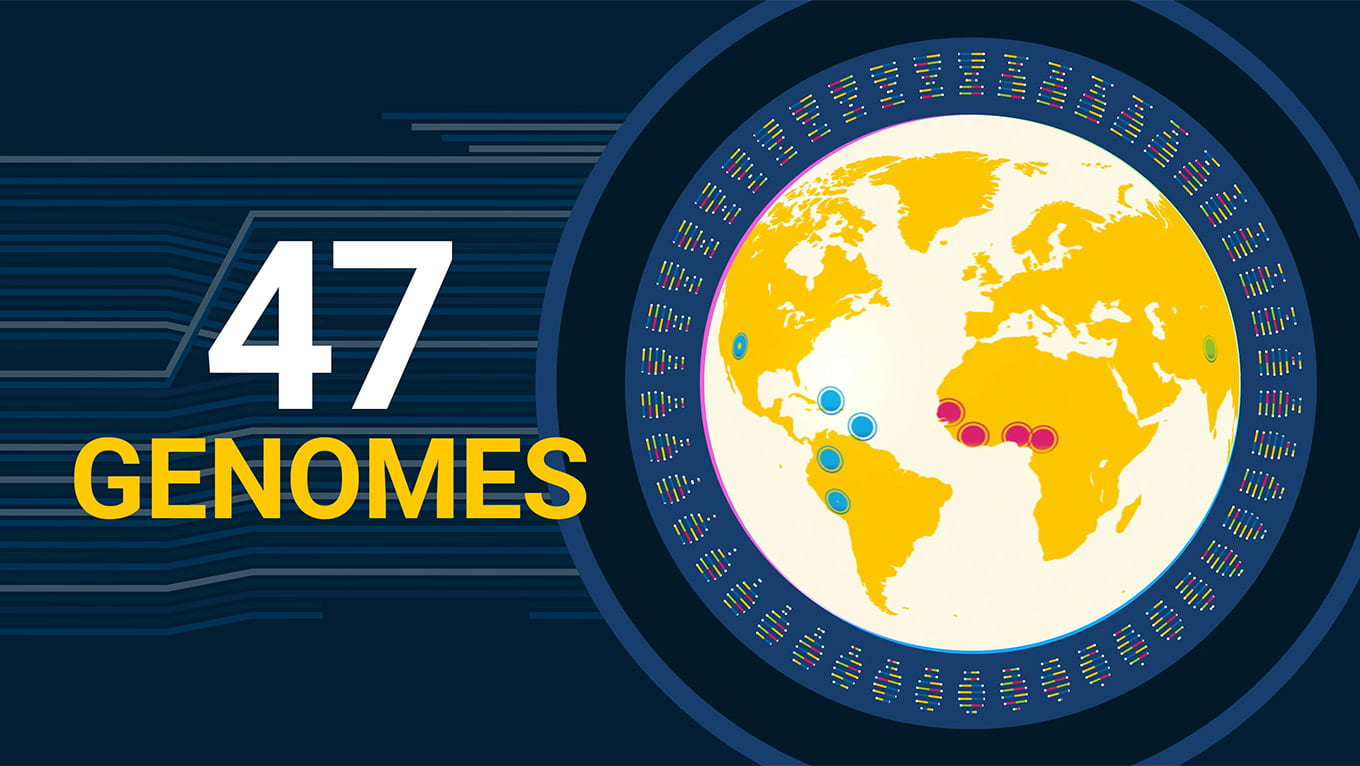I am sharing news today of a scientific breakthrough with profound implications for global human health. The Human Pangenome Reference Consortium, co-led by our biomolecular engineering faculty members Benedict Paten and Karen Miga and supported by fellow researchers at the UC Santa Cruz Genomics Institute, released the first draft of a human pangenome. This momentous new resource will provide scientists with a more diverse, accurate, and complete reference for genomic studies, which will revolutionize targeted healthcare and open the door to a multitude of clinically impactful discoveries.
The field of genomics is rapidly evolving, but has been limited by its reliance on a reference that comes largely from a single individual. The pangenome addresses this — it contains the sequences of 47 individuals of different ancestral backgrounds, providing a much richer point of reference to find and understand the differences in our DNA. This milestone for the school of engineering and our campus, and the entire field of genomics, is just the beginning. The team has set an ambitious goal of representing even broader diversity by expanding the reference to 350 individuals by 2024.
The roots of this work began at UC Santa Cruz more than 20 years ago with the Human Genome Project. Genome Browser lead Jim Kent, then a graduate student working alongside Baskin Engineering Distinguished Professor David Haussler (now the Scientific Director of the Genomics Institute), wrote the code to assemble and publish the first human genome sequence and set the field on a path of massive global collaboration by sharing it on an open-source platform. And just last year, Assistant Professor of Biomolecular Engineering Karen Miga co-led the Telomere-to-Telomere Consortium to fill in critical gaps from that original public project, which had not been possible earlier due to limitations in DNA-sequencing technologies. These advances not only unlocked the mysteries of our human code, but because of our deeply-held commitment to openly sharing access, they have led to important discoveries in identifying and treating human disease.
Democratizing the reach of healthcare by making the human genome a shared global resource and reflecting the diversity of the human population is a fitting point of celebration as the 25th anniversary of the Baskin School of Engineering at UC Santa Cruz comes to a close. Join me in congratulating these forward-thinking innovators whose inclusive work will benefit humanity for generations to come.




